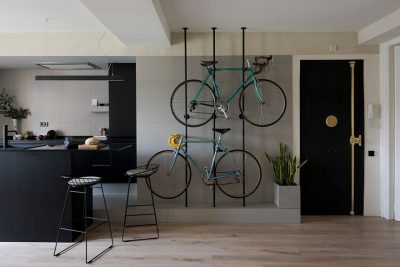
Buying a home is one of the biggest financial commitments you’ll ever make. Without proper budgeting, unexpected costs and financial strain can quickly turn your dream home into a burden. The key to a stress-free home-buying experience is to prepare financially for both upfront and long-term expenses.
From calculating mortgage payments to accounting for hidden costs, these nine essential budgeting tips will help you make informed decisions and stay financially secure throughout your home-buying journey.
1. Assess Your Financial Health
Before you start house hunting, evaluate your financial situation to determine how much home you can afford.
✔ Calculate your total income – Include salary, bonuses, side hustles, and investments.
✔ Track monthly expenses – Consider fixed costs (rent, utilities, groceries) and discretionary spending (entertainment, dining out).
✔ Cut unnecessary expenses – Reducing non-essential spending can free up savings for your home purchase.
A clear financial overview helps determine affordability and identify areas to save more effectively.
📌 Related: How to Improve Your Credit Score Before Buying a Home
2. Determine Your Home Affordability & Mortgage Payments
Knowing your financial limits is crucial when deciding on a home. Use a mortgage affordability calculator to estimate your monthly payments based on:
- Home price
- Down payment percentage
- Loan term & interest rate
- Property taxes & insurance
Why It Matters
- A larger down payment reduces monthly costs and eliminates Private Mortgage Insurance (PMI), saving you money.
- Understanding your mortgage obligations ensures you don’t stretch beyond your budget.
💡 Tip: Use this mortgage calculator to explore different financial scenarios.
3. Account for Hidden Home-Buying Costs
Many first-time buyers are caught off guard by additional expenses beyond the listed home price.
Upfront Costs to Prepare For:
- Closing costs (2-5% of home price) – Loan fees, title insurance, legal charges.
- Home inspection fees – $300-$600 but crucial for detecting issues.
- Moving costs – Hiring movers, transportation, and storage fees.
Ongoing Costs of Homeownership:
- Property taxes – These vary based on location.
- Homeowners insurance – Protects against damage and liability.
- HOA fees – If applicable, monthly dues for shared community expenses.
- Repairs & maintenance – Experts recommend saving 1-3% of your home’s value annually for unexpected repairs.
By budgeting for these costs upfront, you avoid financial surprises after moving in.
4. Save for a Larger Down Payment
A higher down payment offers several financial benefits:
✔ Eliminates PMI, reducing monthly mortgage costs.
✔ Lowers mortgage payments by decreasing the loan amount.
✔ Reduces interest paid over the loan term, saving you thousands.
If 20% is out of reach, aim for at least 10% and automate savings. Set up a dedicated account to track progress and avoid spending elsewhere.
5. Improve Your Credit Score for Better Loan Terms
Your credit score directly affects your mortgage interest rate. A higher credit score results in:
✅ Lower monthly payments
✅ Better loan approval chances
✅ Savings of thousands in interest over time
How to Improve Your Credit Before Buying a Home:
✔ Pay off high-interest debt.
✔ Avoid new credit lines or loans before applying.
✔ Make all bill payments on time.
✔ Check your credit report for errors and dispute inaccuracies.
Even a small increase in your credit score can significantly reduce your mortgage costs.
6. Get Pre-Approved for a Mortgage
A mortgage pre-approval is an essential step before making an offer on a home.
✔ Shows sellers you’re serious, making you a competitive buyer.
✔ Prevents wasted time by focusing only on homes within your budget.
✔ Speeds up closing since lenders have already reviewed your financials.
🔎 Tip: Get pre-approved with multiple lenders to compare mortgage rates and terms.
7. Avoid Major Financial Changes Before Closing
Once pre-approved, maintaining financial stability is critical to securing your mortgage.
🚫 Avoid taking on new debt (e.g., car loans, credit cards).
🚫 Don’t make large purchases (e.g., furniture, appliances).
🚫 Avoid changing jobs unless absolutely necessary.
Lenders recheck your finances before closing—any major change could jeopardize your mortgage approval.
8. Budget for Long-Term Homeownership Costs
Owning a home involves more than just a mortgage payment. Plan for:
💡 Utilities – Electricity, water, internet, gas, and trash collection.
🏡 Property taxes – These may increase over time.
🔧 Routine maintenance – Budget 1-3% of home value annually.
🌪 Homeowners insurance – Protects against damage and liabilities.
Unexpected home expenses will arise—having an emergency fund prevents financial stress.
9. Plan for Future Upgrades & Renovations
Even if your home is move-in ready, you’ll likely want to upgrade or personalize it.
🔹 Kitchen & bathroom remodels
🔹 Landscaping & outdoor improvements
🔹 Energy-efficient upgrades & smart home features
By planning ahead for renovations, you can improve your home without financial strain.
Final Thoughts: Smart Budgeting for a Successful Home Purchase
Budgeting for a home isn’t just about saving for a down payment—it’s about long-term financial preparation.
By following these nine essential budgeting tips, you will:
✔ Make informed financial decisions
✔ Avoid financial stress & overspending
✔ Secure your financial future as a homeowner
With the right planning and financial discipline, you can confidently buy a home and enjoy it without unexpected financial burdens.
📌 Next Steps: Explore our guide on How to Choose the Right Mortgage for Your Needs.








